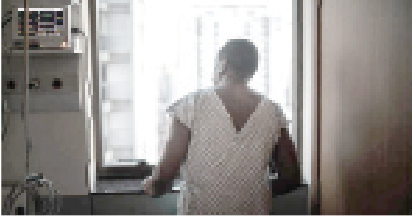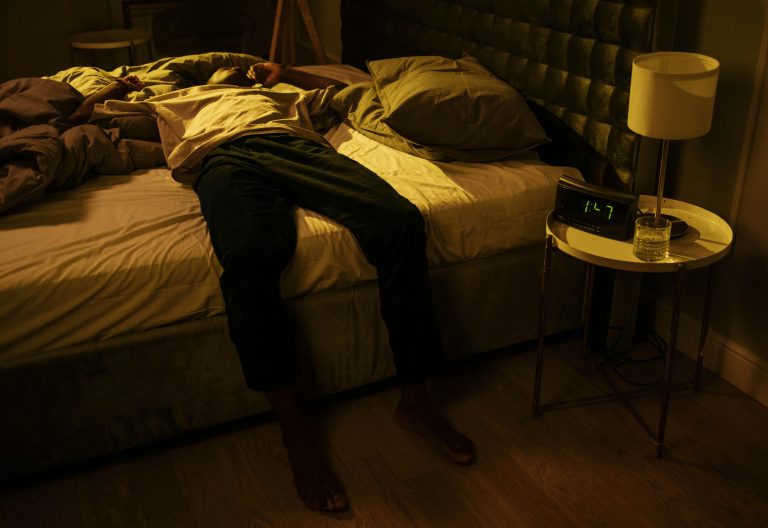Doctors gave my husband just six months to live

When Nancy Kibuthu met David Mithamo through her cousin in 2001, it was love at first sight. Immediately, a friendship struck between the two and in 2002, they held their wedding in US where they were residing.
However, in 2005, he was diagnosed with lung cancer. He started radiotherapy and chemotherapy treatment, but he became weak and lost a lot of weight. By 2006, his doctor said he had only six months to live. However, he was told he could live longer if he stayed positive, changed his lifestyle and most important, ate organic food.
“It was both a stressful and difficult year for both of us. We never told any of our family members that he was dying. But my husband was a fighter,” recalls the writer and entrepreneur who resides in Massachusetts, US.
“At times I would lock myself in my room and just sob for hours, but I didn’t want to show him that I was weak. I had to be strong for him and our two children.
“At first, he kept a lot to himself and the fact that he was normarly a quiet person made it even worse. I could see that he was affected emotionally. Sometimes he would watch the children and cry,” she adds.
However, six months came and her husband still lived. Years came years passed. But every day, they lived with the fear that it was just a matter of time before he left.
Anticipatory grief
By definition, anticipatory grief is the kind that occurs before death and is common amongst people who face the eventual death of a loved one or their own death. Faith Gichanga, a counselling and organisational psychologist, says while most people expect to feel grief after death, fewer people are quite familiar with grief that shows up before a life ends.
“This kind of grief is usually experienced after the loss, but sometimes it may also be experienced prior after realisation that a certain loss is imminent, for example in the case where a doctor informs a family that their loved one only has a limited period to live due to a terminal illness,” she explains
Faith adds that this process of getting through such a season is certainly not linear nor is there a specific time period stipulated to find healing. Different people go through the process differently and for different lengths of time. Factors that determine the style of grieving and duration may include, personality type, closeness with the loved one, dependency, support system among others.
“Typically, though, there are five major stages that such a family will go through. The first reaction is usually shock and denial. Here, the family members may vow to keep looking for second and third opinions.
“When it really dawns on them the finality of the situation, they may enter into a state of intense anger. It may be directed to themselves, the dying family member, God, the health systems or just the entire world.
“The next stage is called bargaining and here is where the dying person or the family members may find themselves negotiating with God and making promises to do certain things differently or better or to be more charitable, if only God would save the person.
“When bargaining does not seem to make a difference the family members and/or the dying person enter a state of intense sorrow and a feeling of hopelessness, which is the depression stage. The person withdraws and may cry a lot.
“The last stage is acceptance. Acceptance does not mean that it is necessarily a joyful or happy time. It simply means that the family members have embraced the inevitable and are able to have conversation about the death, such as making appropriate plans about care for their children, burial rites, succession among others” Faith explains.
Nancy recalls how accepting her husband’s situation made it easy to cope with the grief that her life partner was leaving.
“If you resist it, the pain becomes too heavy to bear. I prayed about it and accepted it. I also engrossed myself in work and the more I became busy , the more I didn’t think about my husband ‘s condition that much.,” she adds.
She attended counselling sessions to help her cope. She also began having conversations with her husband on the legacy he wanted and how he wanted their two children to be raised.
Nancy started,Humble Home Care in 2014, a programme that takes care of the elderly with the aim of having her husband, an IT specialist, quit his job so that he could work in a relaxed environment. Her husband was happy that her business stabilised.
Last moments
“He spent a lot of time with our children, especially our daughter. They discussed a lot of things, especially girl child. We were also able to buy a home, so he was happy that we would be safe and comfortable even if he left. In addition, he requested me not to change my church, which I’ve never done. He was Catholic and I’m Presbyterian,” she narrates.
In May 2019, 13 years after he was given few months to live, his condition worsened and Nancy took him to hospital.
This time round, the doctors called her aside to tell her that her husband really had a short time to leave. Things got worse in June, but he still found the strength to continue living— he even had a session to talk to men in his church since he was their leader. He died six days after celebrating Father’s Day in 2019.
To take away the pain of losing her husband, Nancy delved into writing her first book in 2019, Beyond All Limitations, which detailed her life with her husband. She has written another book, Girl Work That Magic, based on her other passion, which is to mentor girls from age eight to 14 years.
Faith advises families experiencing this kind of grief to seek counselling as it assists in helping them talk about the emotions and thoughts in a safe space.












